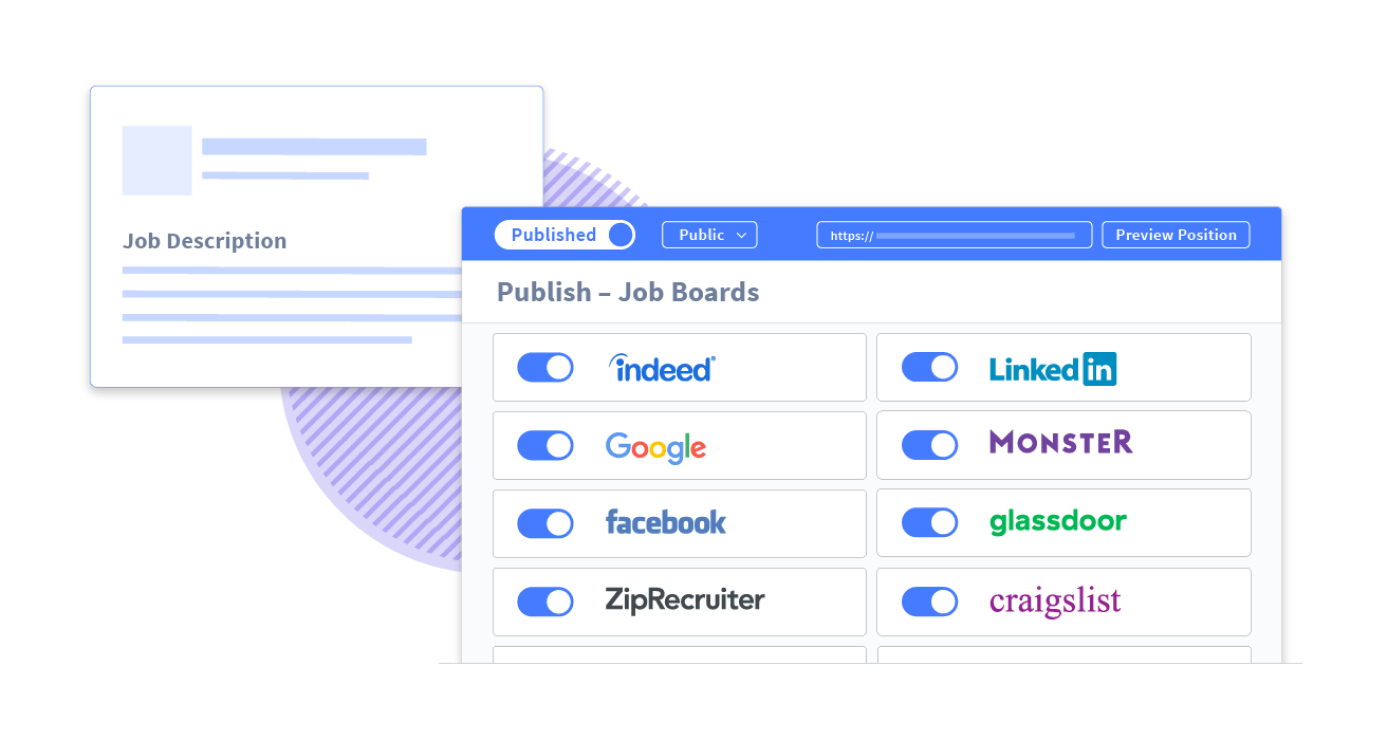Hire Mental Health Specialists
A person’s experience with any form of mental illness and one’s journey to mental health is personal. No two stories are identical; each one is unique. In dealing with mental health issues, seeking the help of a mental health specialist is crucial to help patients move towards health and recovery.
Mental health specialists typically work full-time in a variety of different settings, including: mental health centers, hospitals, clinics, community centers, outpatient facilities, and correctional centers. Some examples of issues that mental health specialists work with include: anxiety, depression, post-traumatic stress disorder (PTSD), and schizophrenia, among others. Depending on the requirement, mental health specialists may also specialize in a specific group of people (children, elderly, or otherwise) and work with clients from different backgrounds.
For hiring managers, the first step to hiring a mental health specialist is to write an accurate job description that will attract the interest of candidates. For a compelling job post, hiring managers should be clear, concise, and detailed. Are you looking for candidates who live in a specific area? What is the schedule? Carefully outline the responsibilities as well as requirements. These details will help candidates visualize themselves working in your clinic or institution.
Aside from general job boards, it is best for hiring managers to post job announcements on healthcare-specific job boards, online groups, and communities as well. Getting referrals from other medical professionals and employees is a helpful way to source candidates. Your staff may already know qualified mental health specialists so let them know about the job vacancy.
Mental Health Specialist Responsibilities
The daily duties of mental health specialists may vary depending on their place of work. Generally, mental health specialists assess the health and history of clients and conduct interviews respectfully and professionally, allowing clients to share information that they are willing to touch on. They observe and conduct assessments to identify and diagnose specific mental health disorders.
After diagnosis, mental health specialists create and develop an individualized treatment plan, applying counseling methods implemented in daily or weekly sessions. Mental health specialists also recommend other resources and community support groups that are available to the patient. They collaborate with other mental health professionals if necessary.
Additionally, mental health specialists document all their notes and progress reports after each session. They continuously re-assess clients to study their progress and modify the treatment plan if needed. Throughout the treatment, mental health specialists update the families of clients as well other health professionals involved in the clients’ care, if appropriate, upholding patient confidentiality and professionalism at all times.
Mental Health Specialist Skills and Qualifications
To qualify as a mental health specialist, a candidate should hold a bachelor’s degree in psychology and a master’s degree in psychology, counseling, social work, or a related field. The candidate must have completed several years of supervised clinical work experience and hold a certification as certified mental health professional. Previous work experience in the same role is typically required.
An ideal candidate is a person who is compassionate, trustworthy, and professional. Candidates must have excellent active listening and problem-solving skills. Moreover, strong communication skills and empathy are a must as mental health specialists interact closely with patients, their families, and other healthcare professionals. Expertise including various forms of therapy and techniques is essential.
Mental health specialists are instrumental in the lives of clients who need help improving their mental health. Finding the right fit for your clinic or health facility will undoubtedly mean that more patients will get the help they desperately need.








